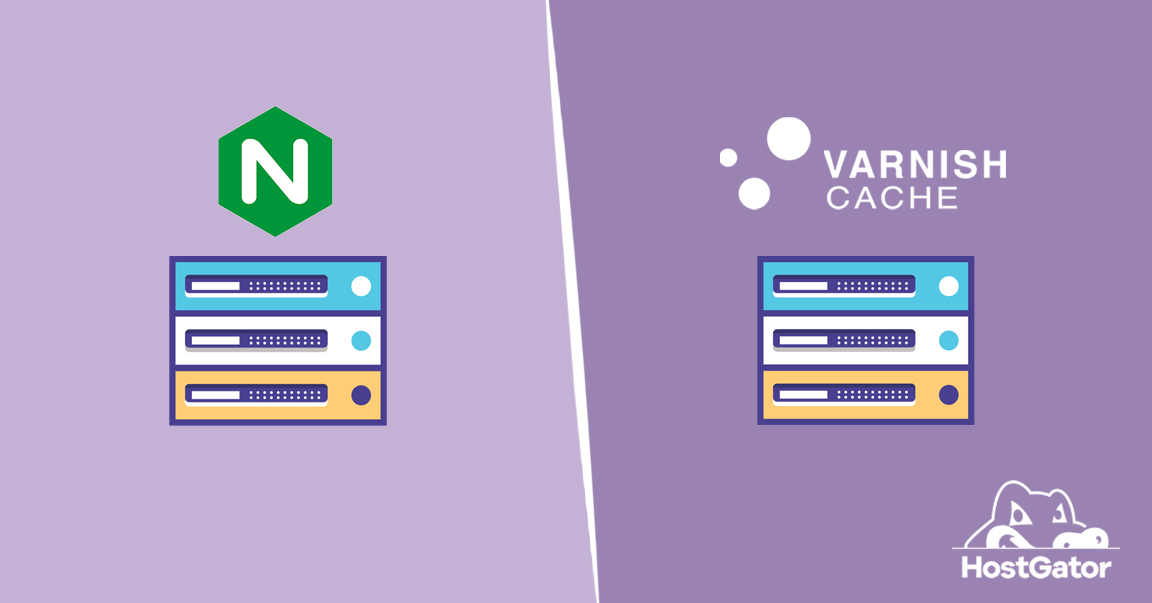As a website owner, nothing is more important than retaining your visitors. For that, you need a fast loading website, which directly contributes to retaining your visitors as well as ensures higher search engine rankings. That’s where caching comes in. You’ve probably heard of the term caching, but what exactly is it? Well, in computing a cache refers to a high-speed data storage layer, which can be served up quickly when it is requested for. Caching is, essentially, the process of storing copies of data and files in a temporary storage location (a cache) so that it can be accessed quickly.
Caching isn’t the only solution for a fast loading website. Others include the optimisation of your images or integrating a CDN (Content Delivery Network). However, caching is important, and we’re going to look at two popular caching solutions to help improve the speed of your website – Varnish and NGINX.
What is Varnish Cache?
Essentially a web application accelerator, Varnish Cache is also referred to as an HTTP reverse proxy caching. It is installed at the front of any HTTP server and configured to cache its files and data. Varnish is an incredibly fast caching solution and can accelerate delivery up to 300-1000 times (based on your hosting architecture).
What is NGINX?
NGINX is open-source software for reverse proxy, load balancing, caching, web serving, media streaming and more. NGINX is often used as a proxy server, and by using a mail proxy, load balancer, HTTP cache, a reverse proxy and micro-caching, it reduces the load time of your website and thereby improves its performance. High traffic websites often use NGINX caching, as it is known to be effective and efficient.
NGINX is an open-source webserver (which is also used as a proxy). Varnish, on the other hand, is not a web server, but more of a frontend accelerator.
With these basics in mind, let’s look at which one would work for your website.
NGINX vs. Varnish
- Flexibility:
A key aspect of any technology is its flexibility. One of Varnish’s greatest advantages over NGINX is its flexibility, especially with configuration language. Varnish allows developers to create a caching structure by using the Varnish Configuration Language, tailoring it to the needs of the website. It also allows you to set guidelines on how to deal with incoming requests, what data is extracted from the server (and shared with the end-user), how to alter user responses and which source to use. You can create a more complex caching structure, compared to NGINX’s reverse proxy.
- Static Content Management:
If you’re looking at static content management, NGINX has the upper hand (especially if the NGINX proxy and the static content exist on the same server). Varnish Cache, on the other hand, requires you to add more functionalities to manage the same type of content.
However, when you need to purge the content, the roles are reversed. Varnish Cache allows you to purge static content whenever you need to. NGINX (as an open-source server) has more limitations, and the basic NGINX OSS does not offer content purging – you’ll need to buy the NGINX Plus plan and get the FastCGI Cache Purge option. HostGator India offers pre-integrated NGINX Plus caching with Cloud Hosting plans. This ensures that the static elements of your website are cached efficiently, and the website speed is accelerated, even in times of high traffic.
- SSL Support:
SSL (Secure Sockets Layer) support is a widely deployed security protocol that offers a secure channel between two machines that are operating over an internal network or the internet. From 2018, SSL support has become a key aspect that website owners must look at. This is due, in part, to a 2018 Google mandate which states that websites not migrated to HTTPS would be displayed as “not secure”. SSL certification works to encrypt sensitive information, like passwords, classified data, credit card details and more. It ensures that you are both sharing and receiving data from trusted sites. Your site visitors will trust your website and consequently, visit more. So, as a result, you need to opt for caching solutions that offer SSL support. NGINX triumphs over Varnish in this aspect, because it offers native SSL Support. Varnish does not include integrated SSL support. You can balance this out by choosing a great hosting provider to avail the benefits of SSL Support, and use Varnish simultaneously.
HostGator offers a free SSL certificate, which encrypts the communication between the server and your visitors, makes sure your website is secure by featuring the padlock icon on your browser and boosts your Google ranking.
Benefits of NGINX
- High speed
- Consumes less memory
- SSL Support
- Used as a complete webserver solution, apart from just a reverse proxy
- Shorter learning curve
Benefits of Varnish Cache
- The chance to build a more flexible, customised and complex caching structure
- In-built purging capabilities
- Supports ESI (Electronically Stored Information, like the data found in a voicemail, email, text and instant messages, metadata, digital images, data stored in databases and more)
Conclusion
Based on the information above, you can see that each brings their advantages to the table, and each can help in different situations. For example, e-commerce and media websites that deal with heavy content and high volumes of traffic and are looking for high performance may opt for Varnish. Other websites might seek the more efficient and open-source NGINX web server. Ultimately, you need to take a look at your website requirements and make the call regarding which caching solution works best for you.
If you have any queries regarding caching with our Cloud Hosting plans or about NGINX Plus, contact us or leave a comment below.
To know more about the other web hosting categories and to choose the right option for your business, visit our Hosting Blogs Category.









